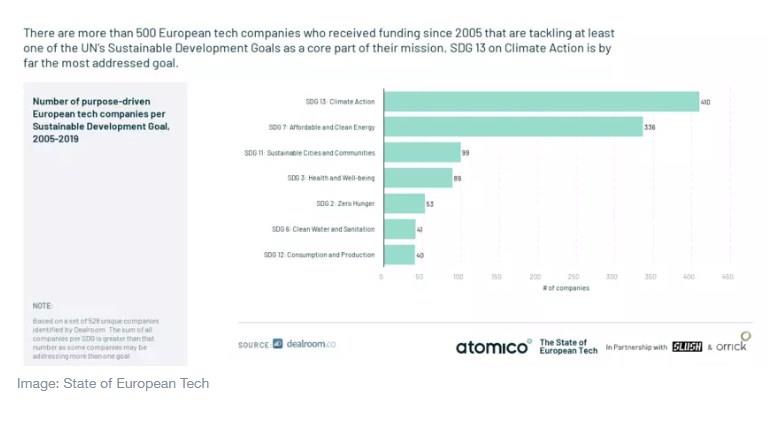by Martina Larkin and Jonathan Lavender*
-Many of the innovative solutions that will drive the green recovery will come from start-ups.
-Ensuring proper access to funding for such companies as they grow is critical.
-Here are four ideas, taken from a new report, about how to improve the innovation funding process.
Amid the urgency of this pandemic and the ever-present concerns about climate change, how best to grow a start-up may not always be the first order of business. However, while Google lays off contract workers and Amazon scrambles to hire more warehouse staff, it is important to remember that in Europe, the tech sector is responsible for more than 2 million jobs and 10% of job growth, which are now crucially at stake as economic turbulence sweeps the globe in the wake of COVID-19.
Naturally, most attention is garnered by companies that are already household names, but the creators of tomorrow’s life-changing technologies and highly skilled jobs may still be in the lab - especially when it comes to those working on climate solutions. ’Green tech’ encompasses many types of innovation, but of key concern are companies at the cutting-edge of scientific discovery. These face unique challenges - including untested business models, longer investment cycles, and the need to deploy capital into pilot manufacturing facilities - that are not shared by their software or platform-focused peers. In Europe, such companies are now in the spotlight as political commitments to the Green Deal makes achieving environmental ambitions a top priority.
Funding these has never been straightforward - and it is even less so in Europe, where market fragmentation and limited access to late-stage capital has forced many companies to seek foreign investors once they enter the growth stage. This does not have to be the case. Europe has a legacy of industrial excellence and one of the best higher education systems in the world. Combined with public and private sector support, it can lead the next wave of innovation - which will enable us to rebuild better and greener as we address the effects of the pandemic.
As part of the Digital Europe initiative, the Digital Leaders of Europe community - comprised of founders, investors, corporate executives and policy-makers - identified innovation funding as one of the key issues for European companies in its 2019 Innovate Europe report. Now, their Bridging the Gap in European Scale-up Funding paper explores further how this relates to growth-stage companies (scale-ups), especially those using scientific innovation to address environmental challenges. Four ideas are presented within:
1. User-centric interaction with funding institutions. The ecosystem of European institutions offering funding for innovative ideas is robust, but navigating it can be confusing for founders and requires dedicated resources. Minimizing bureaucracy, treating founders as customers, and streamlining the process for both applications and funds disbursement could allow the best ventures to scale much more quickly.
2. Blended finance to support innovation. Successfully combining public and private funds can overcome the time and capital constraints on investment. Already used to mitigate risk on large-scale investment in developing regions, this approach can crowd in private capital, familiarize cautious investors with new asset classes such as growth-stage technology companies, and do so with a lower risk of loss compared to subsidies and grants.

3. More inclusive public and private procurement. The opportunity to work with a strategic buyer can present a lot more upside than a direct investment alone, especially for growth companies looking to trial products and collaborate with users to tailor their technology. More flexible frameworks and pilot projects can foster long-term growth.
4. Give founders a voice on regulation. New industries aligned with climate goals must be able to input on policy to ensure that the regulatory environment supports companies that are providing innovative solutions in their growth. For example, organizations such as the IPIFF for insect farming have gone a long way to support the development of new sectors.
Governments, businesses and ecosystem builders can work together to trial these ideas and build out the capabilities needed to ensure that innovative and scientific applications aimed at climate solutions are not lost in the wake of COVID-19, and that recovery measures are taken in order that the future is shaped by innovation and sustainability.
*Head of Regional Strategies, Europe and Eurasia; Member of the Executive Committee, World Economic Forum and Global Head, KPMG Private Enterprise, KPMG International
**first published in: www.weforum.org




 By: N. Peter Kramer
By: N. Peter Kramer

